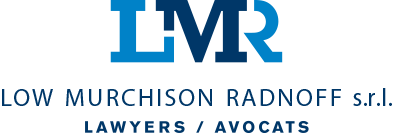Parental Responsibility – It’s the Law

Thème: Family Law janvier 10, 2016 by LMR Website Team
“It is 10 p.m. do you know where your children are?”
In the age of Netflix, and streaming, where will the public service announcements of the future air?
This article briefly discusses the action or inaction of children that a parent(s) may be responsible at law for under Ontario’s Parental Responsibility Act.
But first a bit of a primer about torts. What are torts? Torts are wrongful acts that lead to injury. For our purposes there are two categories: intentional torts and negligence. Intentional torts are those such as theft, or nuisance. Negligence is where ‘but for’ a child’s actions (or inaction) harm has been occasioned. Negligence is a bit more complex than just harm being occasioned, but that definition should be sufficient for the purposes of our discussion.
Parental responsibility has in Ontario been codified in the Parental Responsibility Act [the “Act”]. The Act only applies to intentional torts (e.g. theft and nuisance) and caps the liability of parents at the limit of the Small Claims Court (currently $25,000.00). Under the Act, where a child commits an intentional tort, a parent is liable for damages and economic losses resulting from the tort unless the parent can satisfy the court that:
(a) he or she was exercising reasonable supervision over the child at the time the child engaged in the activity that caused the loss or damage and made reasonable efforts to prevent or discourage the child from engaging in the kind of activity that resulted in the loss or damage; or
(b) the activity that caused the loss or damage was not intentional.
This is a ‘reverse-onus’ type of provision. Generally in Ontario’s civil system the plaintiff must show that the actions taken by the defendant were negligent. In the case of the Act, the parent (defendant) must show that he or she had reasonably supervised the child. The presumption is that that the parent will be responsible, unless the parent can show the court otherwise. For non-intentional torts, and for claims over $25,000, the Act does not apply and the plaintiff would have to prove the parents’ negligence (vs. the parent disproving negligence, but that is for another article).
The Act makes into law the common-law parental duty of care. This duty can be described as requiring the parent to supervise and control the activities of the child and, in doing so, to use reasonable care to prevent foreseeable damage to others. The extent of this duty varies with the age of the child. The factors that a court looks at when analyzing the actions or inaction of a parent include:
(a) the age of the child;
(b) the prior conduct of the child;
(c) the potential danger of the activity;
(d) the physical or mental capacity of the child;
(e) any psychological or other medical disorders of the child;
(f) whether the child was under the direct supervision of the parent at the time when the child was engaged in the activity;
(g) if the child was not under the direct supervision of the parent when the child engaged in the activity, whether the parent acted unreasonably in failing to make reasonable arrangements for the supervision of the child;
(h) whether the parent has sought to improve his or her parenting skills by attending parenting courses or otherwise; and
(i) whether the parent has sought professional assistance for the child designed to discourage activity of the kind that resulted in the loss or damage.
This is not an exhaustive list, rather it is a summary of factors to consider which have been developed in the cases and as set out in the Act.
Parent is a defined term under the Act, and includes both parents with custody and those with access rights.
While hopefully you will never have to become familiar with this Act, the lawyers at Low Murchison Radnoff LLP can assist you in the eventuality that you have suffered damage as a result of an intentional tort of a child, or that you have been alleged to have violated your obligations as a parent under the Act.
[ssba]



